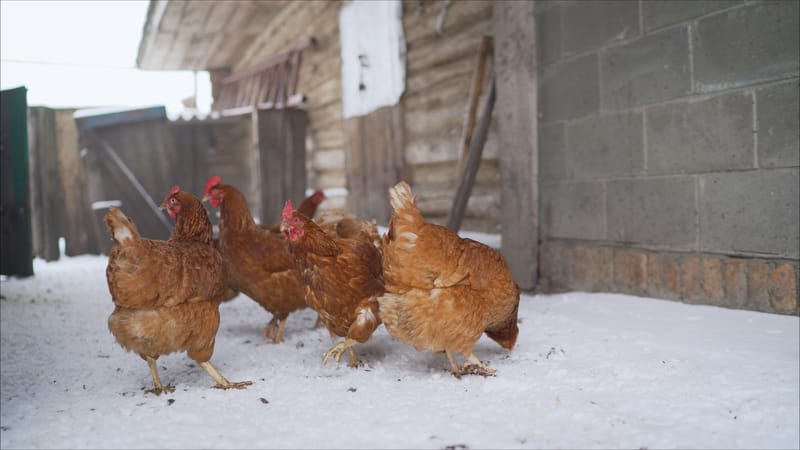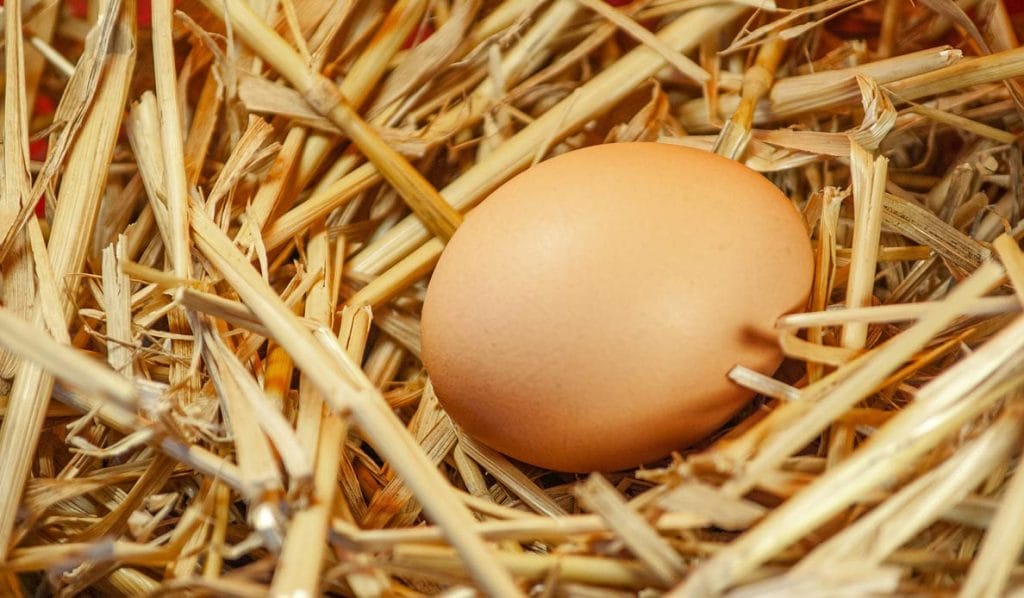Planning to begin – or have you already begun – rearing chickens for egg-laying? How many eggs do chickens lay depends on numerous factors such as their feed, the time of year, age, and breed of chicken. Chickens tend to lay fewer eggs during fall and winter due to shorter daylight hours and colder temperatures.
Here are some general pointers on what affects a chicken’s egg-laying, signs she’s ready to lay, and the number of eggs you can expect each year.
What Age Do Chickens Start Laying Eggs?
Chicks – known as ‘pullets’ until they reach one year old – usually begin laying eggs after they’re 18 weeks old. Typically, they produce the most eggs during their first year of life. But how do you know when your hen is ready to begin laying eggs?
Signs Your Hen May Be Ready
If you’re unsure when your chicken will start laying eggs, there are a couple of tell-tale signs you can watch out for, including:
- Your chicken squatting obediently when you kneel to stroke her.
- Your chicken moving in and out of their chicken house nests, searching for a secure place to produce her chicken eggs.
- Driving other chickens out of potential nests because she feels protective.
- Her comb becomes redder and bigger, which happens just before laying.
So, now you know the signs to watch out for, but how many chicken eggs can you expect her to lay?
How Many Eggs Do Chickens Lay?
In a day, a hen can lay just one egg. However, there’ll be some days when your chick doesn’t lay a single egg at all. This is because a chicken’s body starts creating an egg very soon after the previous egg is laid, and it takes around 26 hours for an egg to form in its entirety. So keep checking your chicken house regularly for eggs.
Daylight stimulates your hen’s reproductive cycle so in warmer months your chickens will lay more eggs. It’s normal for chickens to produce more eggs in spring and summer because of light exposure. In autumn and winter, your chickens will typically miss a day or two of laying. However, you can supplement light using a specialist lamp to provide 16 hours of light per day.

Seasonality of Egg Laying
The time of year also affects a hen’s ability to lay eggs. In the winter months, her production decelerates, or sometimes, she may stop laying completely. This is down to a reduction in daylight hours and moulting.
Moulting is when chickens replenish their feathers. This process means the chicken has to turn her biological resources to feather production rather than egg-laying. Thus, she lays fewer eggs. Since winter brings shorter days, it has an impact on your chicken’s pituitary gland function which decreases the production release of eggs in her ovaries.
Yearly Averages For Egg Laying
Modern-day, well-fed chickens produce an average of roughly 250 eggs annually. However, the number of eggs laid each year also depends on the breed of chicken.
Chicken Breeds
Some breeds of chickens produce more eggs than others. For example, Leghorns, Austalorp, and Rhode Island Reds are capable of laying over 300 eggs during their first year, while Aseel, Cochin, and Turken breeds are only able to produce between 25-100 a year.
How Long Can You Expect A Chicken To Lay Eggs?
A chicken doesn’t merely stop producing eggs once it reaches a particular age. A chicken will lay fewer eggs the older she gets, usually when she’s six or seven years old. The chicken will die of natural causes when she’s around four to eight years old, depending on her breed. The quality of your bird’s eggs will also depend on what you feed it.
What To Feed Laying Hens
The main part of your bird’s diet is a premium-quality commercial poultry feed to ensure it gets all the nutrition it requires. These feeds are available in mash, crumbed, or pellet varieties, and contain a blend of grit (limestone or oyster shell), vitamins (calcium), and grains (soybeans, corn, and oats).
It’s also important to feed hens a variety of vegetables and fruit each day, such as apples, bananas, vegetable peels, berries, spinach, broccoli, cabbage, and silverbeet. You can even feed them small amounts of cooked foods like beans, pasta, rice, and bread. It is vital that you provide access to fresh, clean water, too.
The breed, weather, and what you feed your chicken all affect her egg-laying ability, as highlighted above. So, it’s important to keep your birds happy in their chicken house to ensure good egg quality.
Eggshell Online
Happy chickens lay more eggs with enhanced quality. Feed your hens a healthy diet, look after them throughout the year, and install a high-quality chicken house for shelter and protection. Find the best chicken house for your hens, check out the wide range of high-quality products for your chickens. Find out more information by getting in touch on 01903 756121 or filling out our online contact form.

